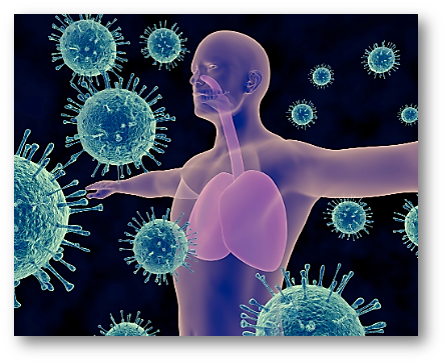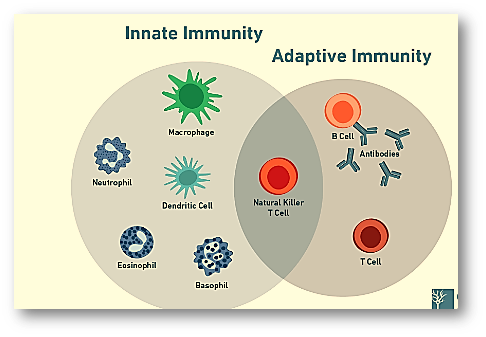
Immunity refers to the ability of the body to resist infections, diseases, and foreign substances. The human body has several mechanisms to achieve immunity, including physical barriers like skin and mucous membranes, as well as specialized cells and proteins called antibodies that help identify and neutralize invading pathogens.
IMMUNE BOOSTERS!!
An immune booster is any substance or method that helps to improve or increase the strength of the immune system. There are several ways to boost immunity, including:
- Eating a healthy diet rich in fruits, vegetables, whole grains, and lean proteins
- Getting regular exercise
- Getting adequate sleep
- Managing stress
- Not smoking
- Minimizing alcohol consumption
- Taking probiotics and vitamin supplements
Note: it’s important to keep in mind that there is no one-size-fits-all approach to boosting immunity, as individual needs may vary depending on factors such as age, lifestyle, and underlying health conditions. Additionally, there is no evidence that taking high doses of vitamins or supplements can effectively boost immunity beyond recommended levels.
TYPES OF IMMUNITY!!

There are two main types of immunity: innate and adaptive.
Innate Immunity:
This is the body’s first line of defense against pathogens and is present at birth. It includes physical and chemical barriers like skin, mucous membranes, and enzymes that prevent pathogens from entering the body.
Adaptive Immunity:
This type of immunity develops over time and is specific to the pathogen that the body has encountered. It involves the production of specialized cells and proteins called antibodies, which recognize and neutralize invading pathogens. Adaptive immunity can also lead to the development of memory cells that remember how to fight a specific pathogen if the body encounters it again in the future.
Additionally, there are two types of adaptive immunity:
Humoral Immunity:
This type of immunity involves the production of antibodies by B cells, which circulate in the bloodstream and target pathogens in body fluids.
Cell-Mediated Immunity:
This type of immunity involves the activation of T cells, which directly target and destroy infected cells.
Both innate and adaptive immunity work together to protect the body against pathogens, and each type of immunity complements and enhances the other.
WHAT IS IMMUNODEFICIENCY??
Immunodeficiency refers to a state in which the immune system is not functioning properly, either due to genetic or acquired causes. This results in a decreased ability to fight off infections and other diseases. There are various types of immunodeficiency, ranging from congenital (present from birth) to acquired immunodeficiency such as AIDS (acquired immunodeficiency syndrome).
FACTORS THAT AFFECT IMMUNITY!!
There are many factors that can affect the immune system and impair its ability to function properly. Some of the most common include:
Age:
As people get older, their immune systems may not work as well.
Stress:
Chronic stress can weaken the immune system and make it less effective.
Lack of sleep:
Sleep deprivation can impair the function of the immune system.
Poor nutrition:
A diet lacking essential nutrients can weaken the immune system.
Alcohol and drug abuse:
Alcohol and drugs can damage the immune system and impair its ability to fight off infections and diseases.
Chronic illnesses:
Chronic diseases such as diabetes, heart disease, and cancer can weaken the immune system.
Medications:
Some medications, such as corticosteroids and chemotherapy drugs, can suppress the immune system.
Infections:
Some infections, such as HIV, can severely impair the function of the immune system.
HOW TO BALANCE IMMUNITY??
There are several steps you can take to help maintain a healthy immune system and improve your body’s ability to fight off infections and diseases:
Eat a healthy diet:
A diet rich in fruits, vegetables, whole grains, and lean protein can provide the nutrients your body needs to maintain a strong immune system.
Exercise regularly:
Regular physical activity can help boost the immune system by increasing circulation and reducing stress.
Get enough sleep:
Aim for 7-9 hours of sleep per night to help your body repair and regenerate.
Manage stress:
Practice stress management techniques such as meditation, yoga, and deep breathing to reduce stress and improve overall well-being.
Avoid smoking and excessive alcohol consumption:
Smoking and excessive alcohol consumption can weaken the immune system and increase your risk of illness.
Stay up-to-date with vaccinations:
Regular vaccinations can help prevent infections and keep your immune system strong.
Practice good hygiene:
Regular hand washing and avoiding close contact with people who are sick can help prevent the spread of infections.
IMMUNITY DISORDERS!!
Immunity disorders refer to a group of conditions in which the immune system is not functioning properly. Some of the most common immune disorders include:
Allergies:
An allergy is an overactive immune response to a substance that is normally harmless.
Autoimmune disorders:
Autoimmune disorders occur when the immune system mistakenly attacks the body’s own tissues, leading to conditions such as rheumatoid arthritis, lupus, and multiple sclerosis.
Immune deficiency disorders:
Immune deficiency disorders, also known as primary immunodeficiency, are a group of conditions in which the immune system is not able to function properly. Examples include X-linked agammaglobulinemia, common variable immunodeficiency, and severe combined immunodeficiency (also known as “bubble boy disease”).
HIV/AIDS:
HIV (human immunodeficiency virus) attacks the immune system and impairs its ability to fight off infections and diseases. Over time, HIV can progress to AIDS (acquired immunodeficiency syndrome), which is a serious and life-threatening condition.
Cancer:
Cancer can weaken the immune system by affecting the production and function of immune cells. Chemotherapy and radiation therapy can also suppress the immune system.
FRUITS AND VEGETABLES HELP AS IMMUNE BOOSTERS!!

Yes, fruits and vegetables can help boost the immune system. They are rich in vitamins, minerals, and antioxidants that are essential for maintaining a healthy immune system. Some specific fruits and vegetables that have been shown to have immune-boosting properties include:
Citrus fruits:
Oranges, lemons, and grapefruits are rich in vitamin C, which is important for immune function.
Berries:
Berries such as strawberries, blueberries, and raspberries are high in antioxidants and vitamins that can help boost the immune system.
Red bell peppers:
Red bell peppers are one of the best sources of vitamin C, with more vitamin C per serving than citrus fruits.
Spinach and kale:
These leafy greens are high in vitamins A and C, as well as other antioxidants and minerals that are important for immune function.
Garlic and onions:
Garlic and onions contain compounds that can stimulate the immune system and help fight off infections.
Ginger:
Ginger has anti-inflammatory and antimicrobial properties that can help boost the immune system.
It is important to note that a balanced diet that includes a variety of fruits and vegetables, as well as other healthy foods, is key to maintaining a strong immune system.
FACTS ABOUT IMMUNITY AND IMMUNODEFICIENCY!!
- The immune system is a complex network of cells, tissues, and organs that work together to protect the body from disease.
- A healthy lifestyle, including a balanced diet, regular exercise, and adequate sleep, can help support a healthy immune system.
- Chronic stress, smoking, excessive alcohol consumption, and certain medications can weaken the immune system and increase the risk of illness.
- Some infections, such as HIV, can severely impair the function of the immune system and lead to immunodeficiency.
- Congenital (present from birth) and acquired immunodeficiency can both result in a decreased ability to fight off infections and diseases.
MYTHS ABOUT IMMUNITY AND IMMUNODEFICIENCY!!
Immune boosters such as vitamins, minerals, and herbal supplements can cure immunodeficiency:
While some supplements may help support a healthy immune system, they cannot cure immunodeficiency.
You can boost your immune system by eating large amounts of certain foods:
Eating a balanced diet that includes a variety of fruits, vegetables, and other healthy foods is key to maintaining a strong immune system, but consuming large amounts of one food is unlikely to significantly boost the immune system.
You can boost your immune system by avoiding all germs:
While good hygiene practices, such as hand washing, can help prevent the spread of infections, completely avoiding all germs is not possible and may actually be harmful, as exposure to some germs can help build immunity.
Immune boosters can protect you from all infections:
No single food, supplement, or lifestyle factor can provide complete protection from all infections. A balanced and healthy lifestyle is the best way to support a healthy immune system.
KEYWORDS:
The immune system, Antibodies, White blood cells, Lymphocytes, Antigens, Infections, Allergies, Autoimmune disorders, Immune deficiency disorders, HIV/AIDS, Cancer, Vitamins, Minerals, Antioxidants, Diet, Exercise, Sleep, Stress, Smoking, Alcohol, Medications, Congenital immunodeficiency, Acquired immunodeficiency, Germs, Hygiene, Hand washing, Vaccination, Herbal supplements, Lifestyle, Immune boosters,

